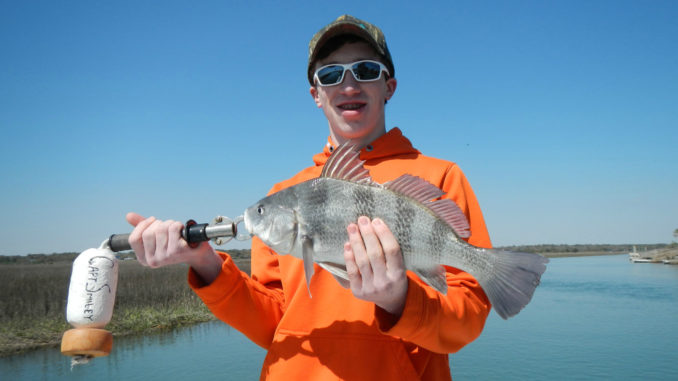
Youths, adults added to angling rolls annually
One thing most accomplished fisherman have in common is the fact that at some point, someone took the time to teach them about the sport. The lessons could have come in the form of first-hand knowledge handed down at a tender age or through other outlets.
There are those, however, who greedily hold on to their knowledge out of fear of someone discovering their “secret spot” or just taking up additional parking at the landing. While these types are found everywhere, inshore fishermen often are some of the worst offenders.
It is worth noting that the marshes and creeks that make up the South Carolina coastline are vast, with thousands of miles of shoreline in a relatively small area. The fact is, if someone fished a different mile of shore line every weekend without ever missing a day, they would not be able to fish it all in an entire lifetime; so there is plenty of room for more anglers.
Another consideration is that the future of the sport is dependent on future generations picking up the torch and supporting groups like the Coastal Conservation Association, which work hard to ensure that fishing stays just as good, or better, for all recreational anglers — not to mention revenue generated for the S.C. Department of Natural Resources through license fees and the many local businesses that are dependent on recreational anglers and their dollars.
Patrick Kelly of Captain Smiley Fishing Charters in Myrtle Beach regularly gets the opportunity to introduce children and adults to saltwater fishing.
Entertaining today’s youth isn’t the easiest task, with competition like high-tech video games and high-speed internet — and Kelly doesn’t allow video games on his boat.
“You have to make it a fun trip and keep kids entertained,” said Kelly, who holds the attention of his younger clients by not just focusing on fishing itself, but also the surroundings, regularly taking breaks when the fishing is slow to watch dolphins or just cruise around. Many things we take for granted, kids are seeing for the first time.
“One of the things kids enjoy most is when we catch bait; they really like collecting it off the deck and floor of the boat and placing it in the livewell,” he said. “I will let them play with the bait in the tank while we fish and give them the net to scoop them up when more is needed.”
Perhaps Kelly’s best tool is an arsenal of dumb pirate jokes he uses to keep the mood light. Of course, nothing will get a kid hooked on fishing faster than actually catching fish.
“Depending on their age, I might cast and hook the fish for them so they can feel the pull and fight,” he said. “The main thing is to help them out as much as needed so they have a good time.”
Tyler Gault of Beaufort, a retired guide, has had the opportunity to teach many young people fishing through the years, and he especially enjoys introducing them to fly fishing.
“Saltwater fly-fishing requires patience, finesse and an understanding of the surroundings,” he said. “I truly believe that by teaching a young person to fly-fish, you help them to become a better person overall.”
When it comes to sharing particular fishing spots, Gault said, “I don’t point out a spot and say, ‘Fish are there.’ Instead, I like to share with them what kind of areas fish are likely to be found and why, so they can find success on their own — no matter where on the coast they are fishing.”
Not everyone starts out fishing as a child, especially in saltwater; many adults take up the sport every year. It can be harder for an adult to learn about saltwater fishing, because people are often less eager to share with them, but Kelly gladly takes the time to show them the ins and outs, going much more in depth than just bait presentation and tackle.
“When I take people out who want to learn about fishing around Myrtle Beach, I encourage them to go slowly on the low tide and examine their surroundings, paying attention to things like oyster beds and grass, because these are the areas that will likely hold fish, even when the tide is up,” he said.
Saltwater fish are heavily influenced by tides and seasons, and figuring out just where the fish will be and when is one of the biggest challenges for those new to the sport.
“I tell people to make a note of where the tide is, what the weather conditions are, and where they are when they catch a fish, because it is likely they can have success again in the same area the next time tide and conditions are similar,” Kelly said. “Before long, a person relatively new to the sport will accumulate several good spots of their own and can regularly enjoy success instead of just guessing where the fish might be.”
For Kelly, Gault and others like them, fishing is not something to be kept from others, but rather something worth sharing so others can know how great saltwater fishing really is. Their love of the sport makes them great stewards of saltwater fishing and ensures that future generations will continue to love and care for South Carolina’s coastline and the fish that swim there.



Be the first to comment